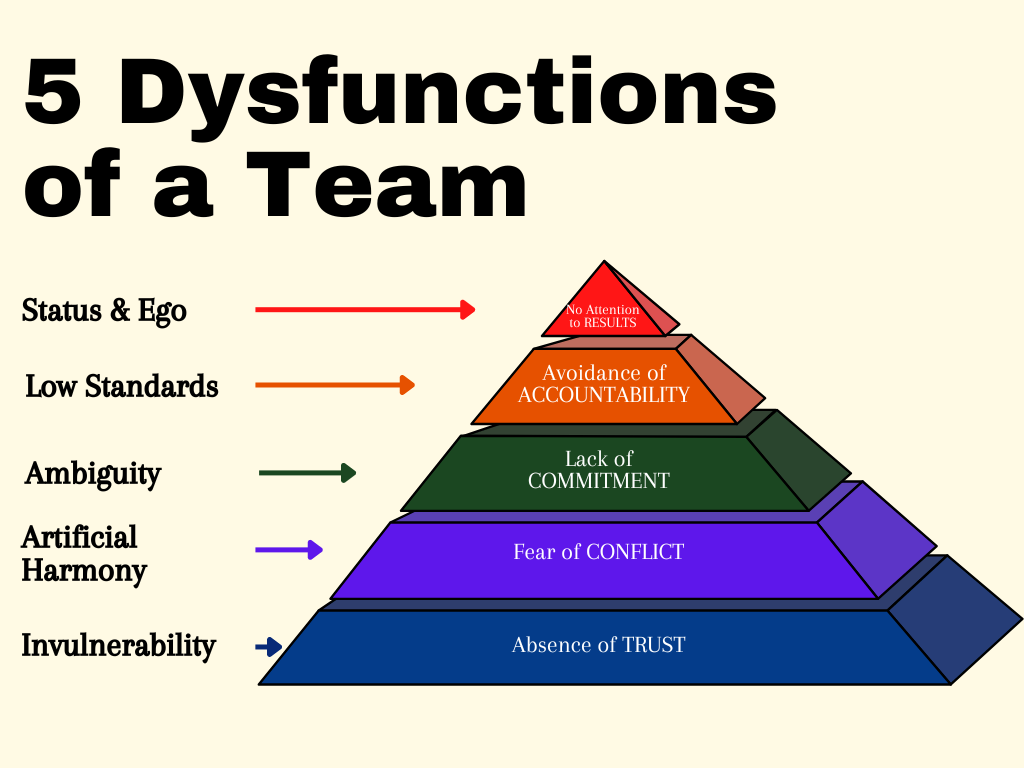5 Dysfunctions of a Team
Social interaction is hard by itself. What makes it even harder is when the survival of your company depends on it and it always does. To understand why the teams, products and ultimately companies fail, let’s take a closer look at the most severe dysfunctions of a team.

Absence of Trust
Trust is the foundation of real teamwork. And so the first dysfunction is a failure on the part of team members to understand and open up to one another. It is an absolutely critical part of building a team. In fact, it’s the foundation of the team work. Where there isn’t any trust, there isn’t any team that can successfully work towards a common goal.
Fear of Conflict
The lack of trust will inevitably lead to the fear of conflict and we are afraid of the conflict we will not engage in open, constructive, ideological debate.
People who are afraid of conflict will hold back their opinions just to avoid it. Conflict is not about only getting your opinions out but it’s also about creating the best version of the product you’re building and agree on the common goal for your product, team or company.
Lack of Commitment
For the product to be successful everyone on the team should buy into the goals. If you don’t believe in the vision of your company or don’t buy in into the next goal that is to achieve, then you won’t be fully committed to it.
So, considering previous point Fear of Conflict - when people don’t unload their opinions and feel like they have been listened to, they won’t fully get on board.
Disagree and commit is a method of avoiding the consensus trap, in which the lack of consensus leads to inaction. In full it sounds like following: Agree and commit, disagree and commit, or get out of the way.
Avoidance of Accountability
Once you achieve clarity and buy-in from everyone on the team, it is then that everyone has to hold each other accountable for what the team signs up to do, for high standards of performance and behavior. And as simple as that sounds, most executives hate to do it, especially when it comes to a peer’s behavior, because they want to avoid interpersonal discomfort.
Inattention to Results
Inattention to Results is the ultimate dysfunction. It plays directly into the human’s biggest game of Status and Ego. It’s much easier to seek out individual recognition and attention even if it happens at the expense of the overall result.
If everyone is focused on the collective goal, it is difficult for ego to get out of hand. What everyone has to understand is no matter how good an individual on the team might feel about his performance when the team loses, everyone loses.